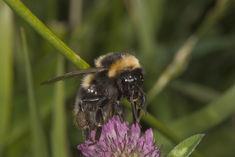
DEFRA and the Welsh Assembly Government have unveiled Healthy Bees, a multi-million pound plan to protect and improve the health of honeybees in England and Wales.
The 10-year plan was drafted in consultation with beekeeping organisations and aims to sustain honeybee populations by supporting beekeepers, to ensure effective biosecurity measures are adopted to minimise risk from pests and disease.
This follows an investment of £4.3 million announced by environment secretary Hilary Benn in January, to gather more information from beekeepers and to undertake more research into the health of bees.
Of this, £2m over five years will contribute to a new research programme on pollinators, which is being developed with other funding partners.
The first stage of the plan will attempt to identify and make contact with up to 20,000 amateur beekeepers, to make sure that they are aware of the need to alert the National Bee Unit (NBU) to bee health problems.
The last two years have seen recorded losses of 10-15 per cent in bee numbers, although it is possible that real losses are significantly higher.
Honeybees are susceptible to a variety of diseases and environmental threats, some of which have increased significantly over the last five to 10 years.
Clive Watson, chairman of the Kent Bee-keepers’ Association, told FPJ: “Any help we can get with the survival of bees in this country is important. They closed Rothampton Lodge [research centre], which was a world leader, because of a lack of funding and if you have an outbreak of European Foul Brood, it is something you need to deal with.
“We already have a seasonal inspector and I know there will be another soon, which is positive because the average beekeeper does not know what to look for. We’re hoping this training will help.”
NFU horticulture adviser Dr Chris Hartfield said: “DEFRA needs to work with stakeholders to ensure all beekeepers understand the real benefits of being part of a national database. And in turn, all beekeepers need to understand that their bees are part of a dynamic and interacting national population, and as a result the health of every hive is of national importance.”